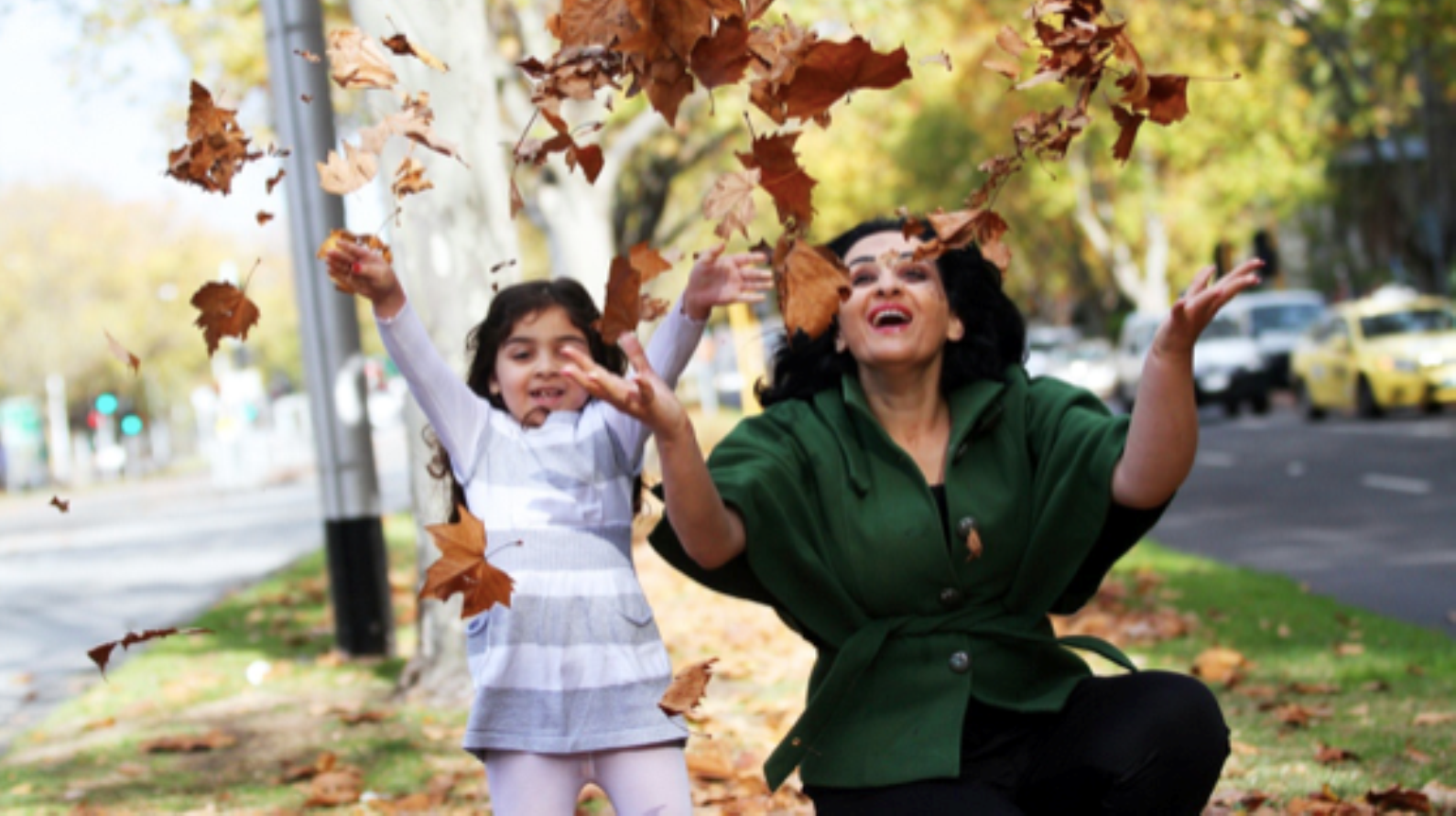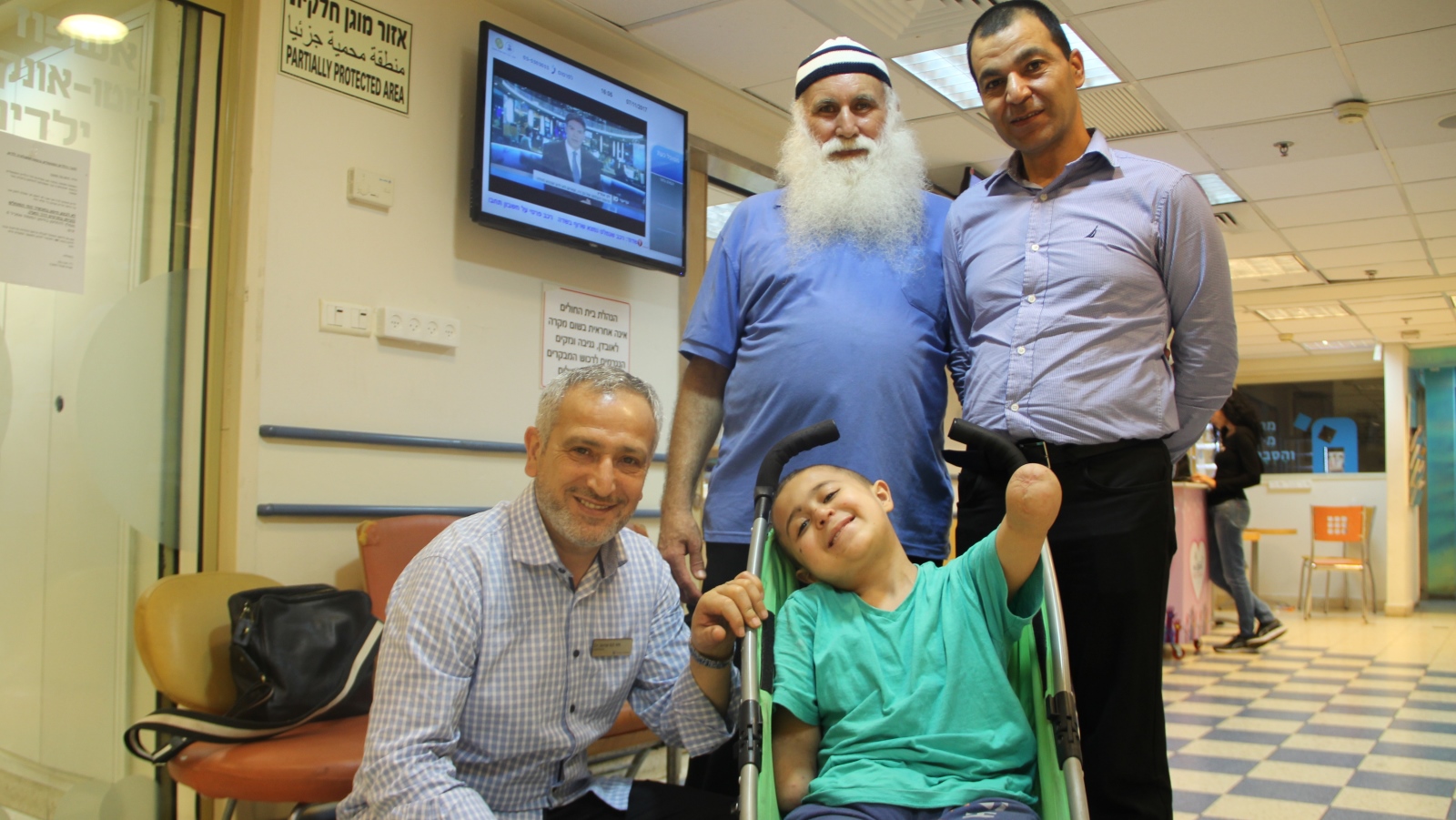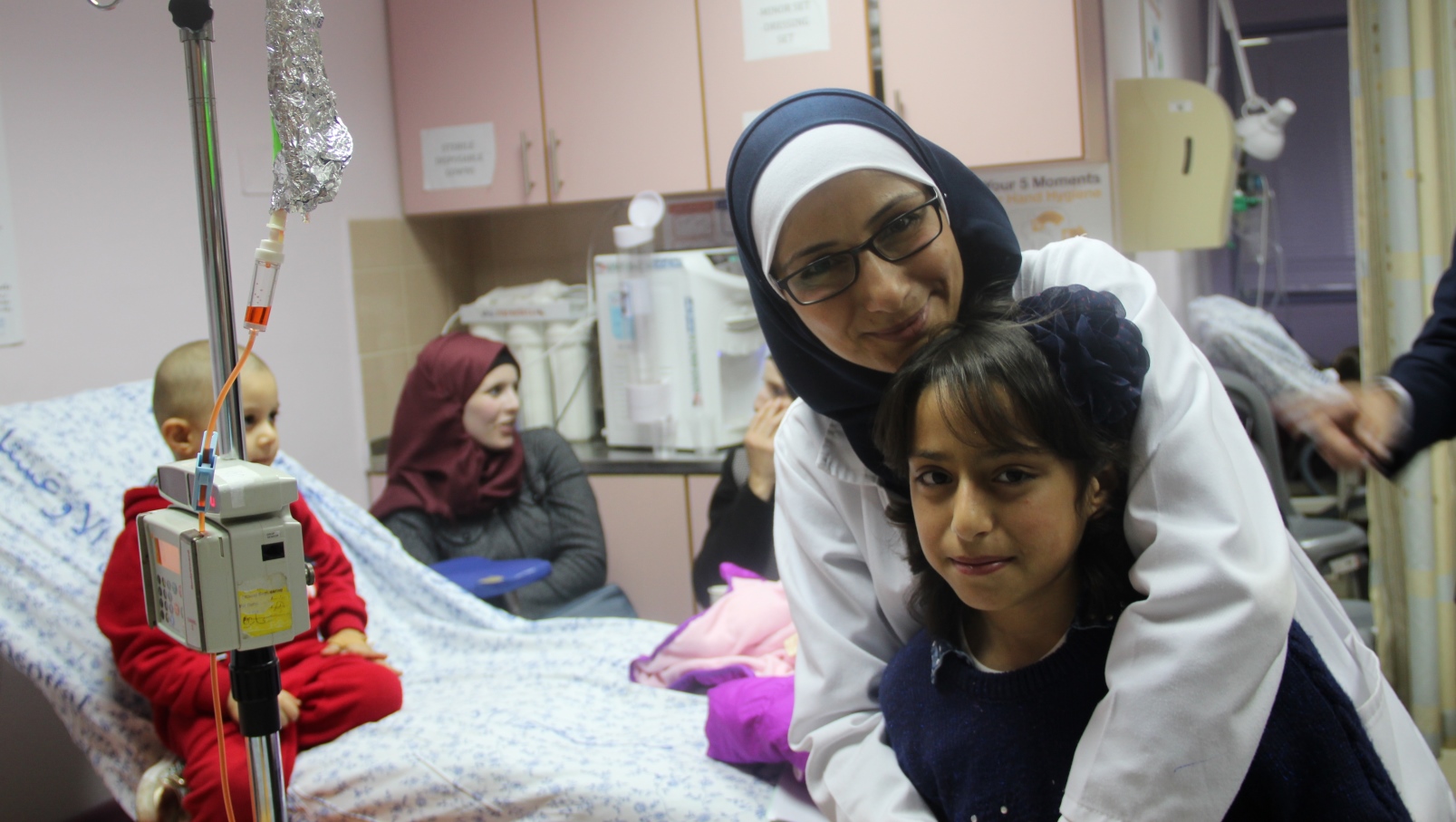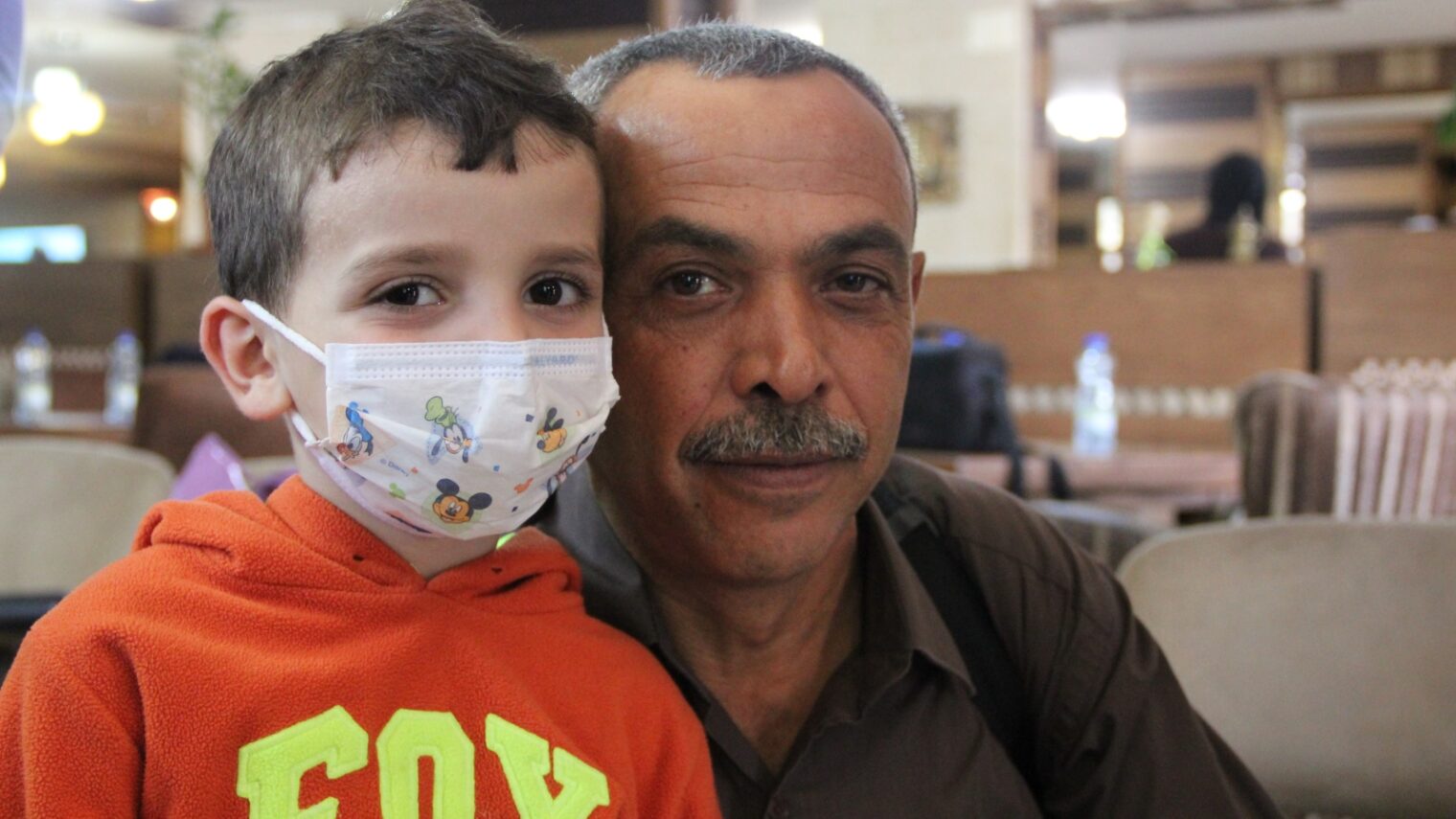In 2012, four-year-old Rozana Salawhi fell from the ninth floor of her family’s apartment in a village near Ramallah, the seat of the Palestinian Authority.
Her mother, journalist Maysa Abu Ghannam, insisted that the child be taken to Hadassah Medical Center in Jerusalem because she knew its expertise in pediatric emergency care greatly surpassed that of the local hospital. This decision most likely saved Rozana’s life.
Half a world away, Hadassah Australia President Ron Finkel watched a video about Rozana’s story and was inspired to use this incident as the basis for a new bridge of understanding by sharing medical expertise between Israelis and Palestinians.
Having lived in Israel for nine years, he knew healthcare is a key sector for engagement.
“In healthcare, every minute of every day Palestinians and Israelis interact in a significant way. A hundred thousand permits are given annually to Palestinians to access treatment in Israeli hospitals,” Finkel tells ISRAEL21c.
And he knew that Israelis were willing to work with equally willing Arab colleagues to improve the standard of care in PA-administered territories and Gaza.
“Israel has one of the most advanced socio-medical health systems in the world; Palestinians have a need and a desire to upscale their health system to ensure that every member of their community has access to the same level of healthcare as their Israeli counterparts,” says the venture capitalist whose son was born in Hadassah Medical Center in 1981.
Project Rozana was launched in 2013 – the same year many Palestinian leaders started discouraging any activities signaling “normalization” among Arabs and Jews. This policy further reduced points of contact between the two populations, but in hospitals daily interaction continued as always.
“If you don’t know ‘the other’ you can believe anything you’re told about them,” says Finkel. He is proud that Project Rozana’s Australian board of directors includes three Muslims, three Jews and four Christians.

Building capacity
Project Rozana has specific short-term and long-term goals.
“We believe it is in everyone’s long-term interest that Palestinians should not be dependent on Israel’s health services. Building capacity takes a long time, so in the short term we focus on three areas,” says Finkel.
The first is transportation for Palestinian patients to hospitals in Israel via a network of volunteer drivers. The second is covering the cost of some medical procedures that the PA does not, for example complex surgeries at Hadassah and Chaim Sheba Medical Center in Tel Hashomer for genetic conditions caused by consanguineous marriages. Project Rozana also supports Ziv Medical Center in Safed (Tzfat) to help care for casualties of the civil war in Syria.

“Our third short-term focus is training,” says Finkel. “For example, for the last year and a half, together with World Vision Australia, we have sponsored a program to train Israeli and Palestinian child psychologists from the West Bank and Gaza to treat PTSD, which is a pervasive problem in both populations. Another example is a series of workshops in areas such as pediatric emergency medicine.”
The 22 participants in the first pediatric workshop, facilitated by Dr. Saar Hashavya at Hadassah, also included four doctors from Iraq and Kurdish doctors from Turkey. Aside from training, its main objective was to establish ongoing relationships between Palestinian and Israeli healthcare professionals for the benefit of their patients.
Long-term goals for Project Rozana focus on three common health problems in Arab populations: Type 2 diabetes, macular degeneration and kidney failure.
Dialysis clinics in PA hospitals are overburdened, says Finkel, and nobody is trained to support a less-disruptive form of dialysis done at home while the patient is asleep. Project Rozana is enabling a training model linking Assuta Hospital in Ashdod with Augusta Victoria Hospital on the east side of Jerusalem to address this problem.
Another area is training Palestinian caregivers to provide palliative homecare for children with terminal diseases.
“There are gaps in medical training because there’s not been enough funding to train Palestinian physicians and support staff in certain sub-specializations,” Finkel explains.
He is gratified to see how training provided by various organizations already has helped improve the situation, in particular regarding Palestinian hospitals’ ability to treat childhood cancer.
“Ten years ago, any child presenting with blood cancer had to be treated in an Israeli hospital. Today, 90 percent of children in the early stages can be treated at Palestinian hospitals and only bone-marrow transplant patients have to come to Israeli hospitals. Even that will change in five years,” says Finkel.

A pediatric bone-marrow transplant unit is being set up at Augusta Victoria by pediatric hematology oncology specialist Dr. Khadra Hasan Ali Salami, who did a fellowship in Jordan and is continuing her fellowship training in pediatric bone-marrow transplants at Hadassah. She was one of the featured speakers on a recent tour to spread the word about Project Rozana in the United States and Canada.
The organization has registered as a charity in Canada and Australia, and has applied for nonprofit status in the United States. “Altogether we raised $650,000 last year and we’re just getting started,” says Finkel. “Our goal is to raise $1 million in 2018.”
For more information, click here














